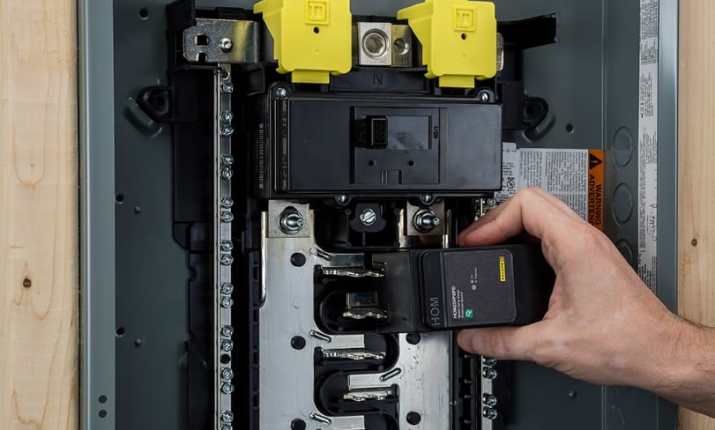Have you ever found yourself fumbling for a flashlight in the darkness as a power outage leaves your home in the shadows? As a homeowner, it’s essential to be prepared for the unexpected, and power outages are no exception.
This post will discuss practical tips on how to keep your household ready for power outages, ensuring the safety and comfort of your family. Continue reading to learn more.
1. Create A Power Outage Emergency Plan

Planning ahead is crucial to minimize disruption during a power outage. Start by discussing and establishing a power outage emergency plan with your family.
What would you do if the power went out during the day or at night? Do you have a designated meeting spot? How will you communicate with each other if cell phone service is down?
Answer these questions and make sure everyone understands the plan. By doing so, you’ll be able to craft and carry out and effective strategy whenever a power outage occurs.
2. Assemble An Emergency Kit
In the event of a power outage, an emergency kit can be a lifesaver. Your kit should include essentials such as:
- Flashlights and extra batteries;
- Battery-powered or hand-crank radio;
- First-aid supplies;
- Non-perishable food and bottled water (enough for at least three days);
- A manual can opener;
- Blankets and warm clothing;
- Personal hygiene items;
- Copies of important documents like identification, insurance policies, and so on;
- A list of emergency contact numbers;
- Cash and spare change; and many more.
Store your emergency kit in a convenient, easily accessible location and periodically check its contents, replacing any expired or depleted items.
3. Invest In Uninterruptible Power Supply (UPS) Devices And Portable Power Stations

A UPS device provides temporary power when the main power source fails, allowing you to continue using electronic devices for a limited time.
In the debate of UPS vs. portable power station, each one serves a different yet important purpose. While UPS devices are designed for essential equipment, such as computers, medical devices, or home security systems, portable power stations are better suited for charging mobile devices, small appliances, and even running lights.
Consider investing in both UPS devices and portable power stations to ensure you have two backup power options for various needs during an outage. This can help prevent data loss, keep essential devices functional, and ensure your home remains secure.
4. Equip Your Home With Alternative Power Sources
Consider investing in alternative power sources, such as portable generators, solar chargers, or whole-house generators.
These devices can provide temporary power during an outage, helping you maintain essential functions like lighting, heating, and refrigeration. Be sure to follow safety guidelines and manufacturer instructions when using alternative power sources.
5. Install Surge Protectors

Power surges can occur when the power is restored after an outage, potentially damaging electronics and appliances.
Hence, protect your valuable devices by plugging them into surge protectors that absorb excess electrical energy and prevent damage.
6. Keep Your Home Well-Insulated
A well-insulated home retains heat in the winter and cool air in the summer, reducing your reliance on heating and cooling systems during a power outage.
Check your home for drafts and seal any gaps around windows, doors, and outlets to improve insulation. In addition, consider adding insulation to your attic or walls to further enhance energy efficiency.
7. Learn How To Manually Operate Your Garage Door

During a power outage, automatic garage doors may become inoperable, potentially trapping your vehicle inside. Familiarize yourself with your garage door’s manual operation mode and ensure that all family members know how to use it.
8. Develop A Plan On How To Deal With Perishable Food
Power outages can compromise the safety of perishable food stored in refrigerators and freezers. To minimize food waste and ensure safety, take into consideration the following steps:
- Keep refrigerator and freezer doors closed as much as possible to maintain their internal temperature.
- Fill empty freezer space with containers of water, which can help maintain the cold temperature and provide an additional source of drinking water during an outage.
- Have a cooler and ice packs on hand to store perishable items if the power outage lasts longer than a few hours.
- Monitor the temperature of your refrigerator and freezer with appliance thermometers. Once power is restored, check the temperatures to determine if the food is still safe to consume.
- Familiarize yourself with guidelines on food safety during power outages, such as those provided by your local health department.
By following the abovementioned steps, you’ll guarantee that your food stays fresh and safe, even during an extensive power outage.
9. Prepare For Medical Needs And Special Considerations

If you or a family member relies on electrically-powered medical equipment, such as oxygen concentrators or nebulizers, discuss a backup plan with your healthcare provider.
Make sure you have extra batteries, backup power sources, or alternative options in case of a prolonged outage. In addition, consider the needs of elderly family members, infants, and pets, and plan accordingly.
10. Stay Informed And Communicate With Neighbors
During a power outage, it’s essential to stay informed about the situation and be in the loop for any updates from local authorities. Keep a battery-powered or hand-crank radio on hand to receive news and alerts.
Plus, maintain open communication with your neighbors to share information and offer assistance. This sense of community can be invaluable during a power outage, as neighbors can pool resources and provide mutual support.
Conclusion
Preparing for a power outage is an important aspect of responsible homeownership. By following the tips outlined in this post, you can minimize disruption, ensure your family’s safety, and maintain a comfortable home during a power outage.
Invest the time and effort now to prepare, and you’ll have peace of mind knowing that you’re ready for whatever comes your way.
